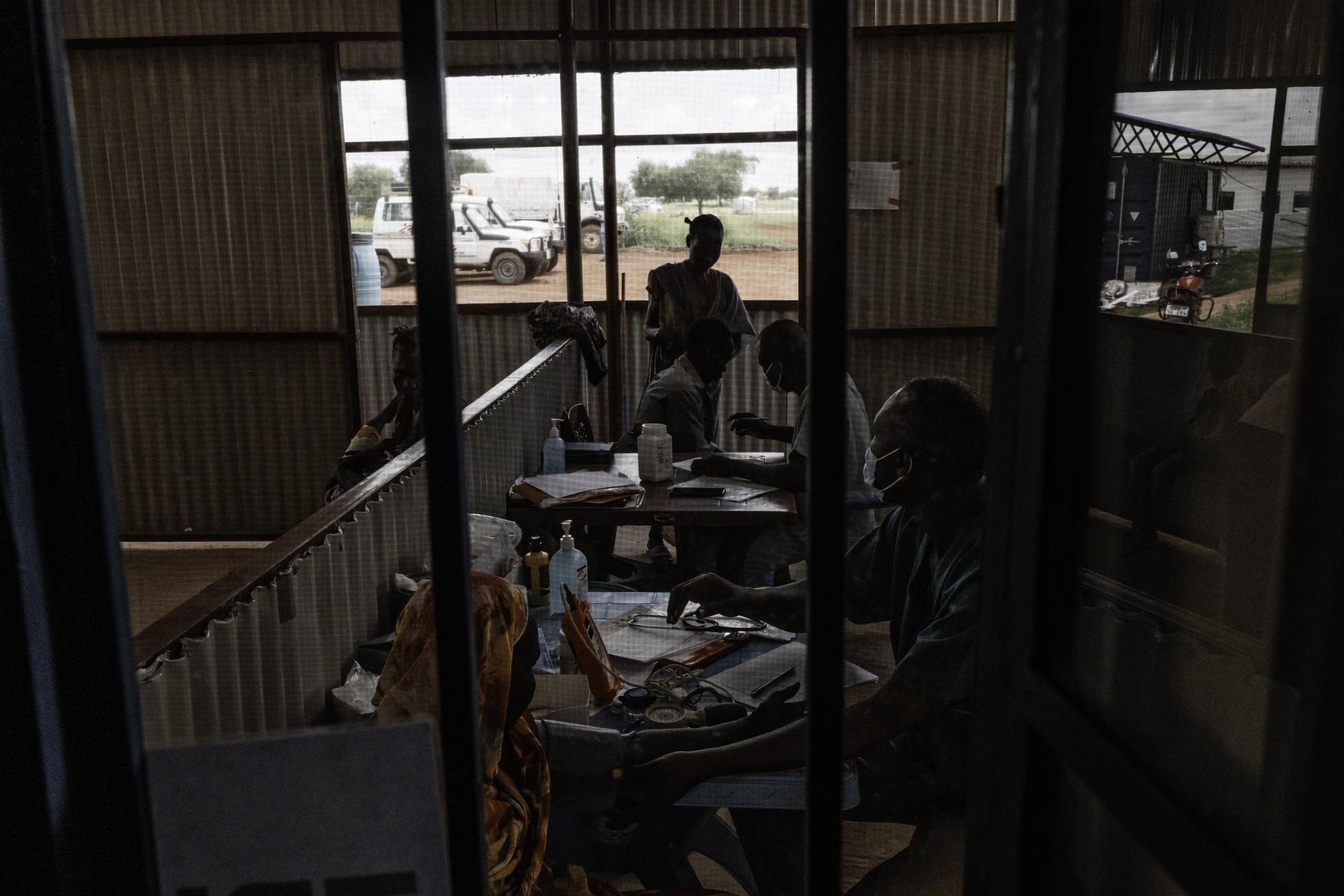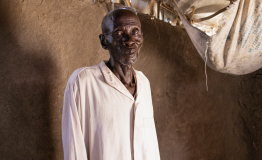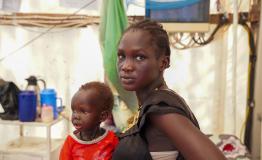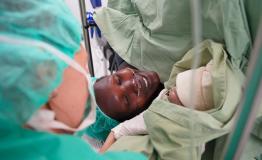“I started with MSF as a nurse in Sudan in 2007. I did all my studies in Jazeera state—about a 3-hour drive south of Khartoum. I went to Sudan with my family when I was only four years old. It was 1986 and the civil war was terrible at that time, we were refugees. I was born in the north of Abyei, near the oil fields.
I graduated from my nursing studies in 2005, the same year the Sudanese Armed Forces (SAF) and The Sudan People's Liberation Army (SPLA) signed a peace agreement. At the time, I was working with the Ministry of Health in Sudan as a nurse. In December 2006, I applied to work with MSF in Abyei, and I started working with MSF on 6 January 2007. I worked until the peace collapsed in 2008, and I was evacuated south to Agok, South Sudan.
In 2009, MSF established a hospital in Agok. Around that time, I went back to Khartoum to further my studies. In 2010, I came back to MSF hospitals in Abyei, South Sudan, and I was the ward supervisor until I was promoted to deputy head nurse in 2015 and nurse team supervisor in May 2022.
Currently I manage six nurses and eight nurse aids in the inpatient department. We have 32 beds in the busy rainy season—like now, because of malaria—and 20 beds in the dry season.
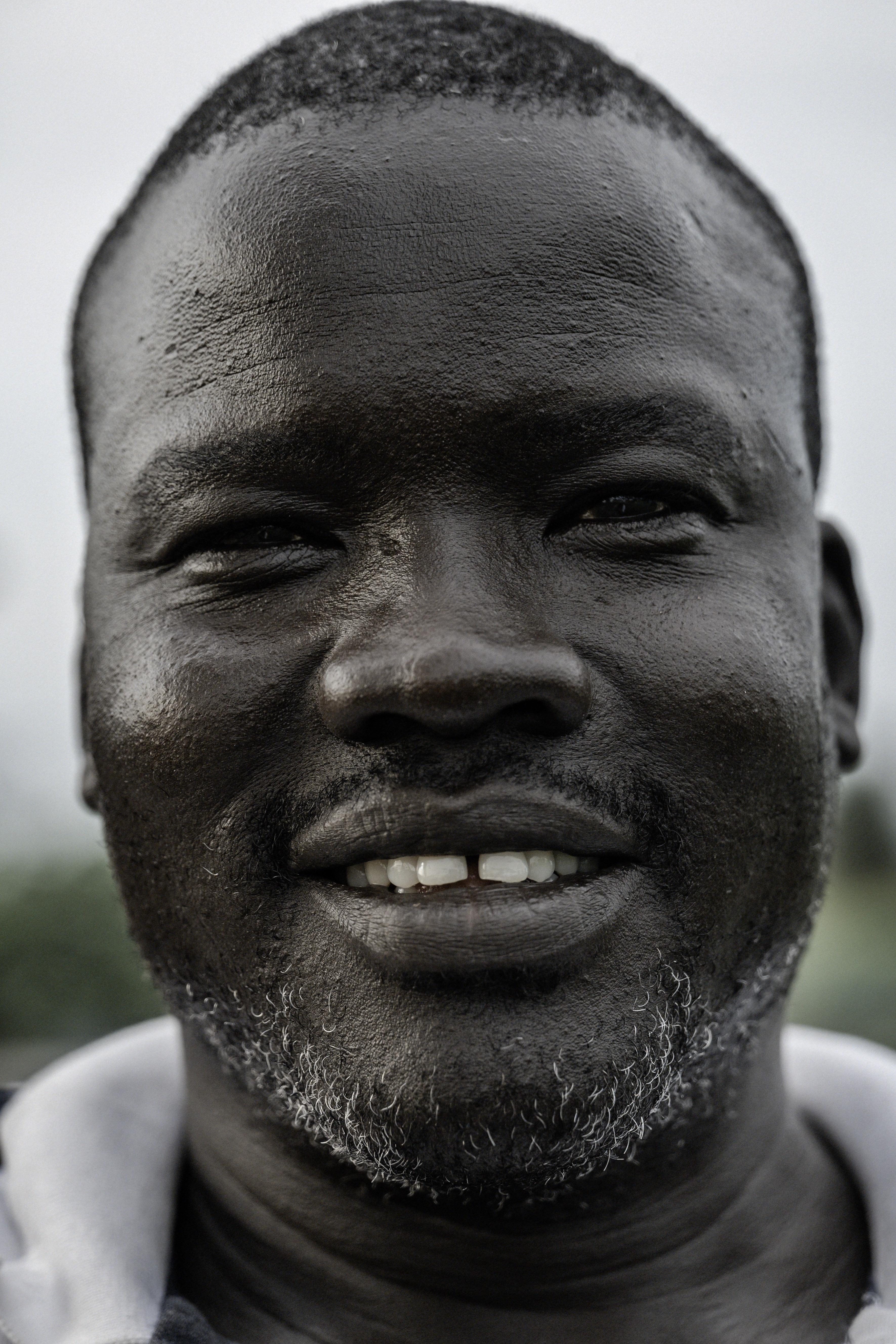
Hospitals Protected by the Community
MSF really helps people by engaging with the communities. Having the hospital means a lot to the community, people feel safe there. Simply having a hospital is not enough, it is having a hospital that is running well and serves everyone.
That means that everyone wants to come to this hospital when needed, and they travel far distances to get here. Everyone knows this is a good hospital. The problem is many patients come to our facilities do not meet the admission criteria. This is a secondary level health care facility and that’s hard for people to understand. Secondary care means we only treat people with serious illnesses—we don’t have the capacity to do more.
In Agok hospital we had more capacity with 160 beds, 450 locally hired staff and 30 international staff working there. This served the people in Abyei but also people in neighbouring states including Unity, Warrap and Bahr El Ghazal State.
Hospitals mean so much to the community. A good example was when violence broke in Agok last year, the hospital was not damaged neither looted. Nobody touched it because it is too important to everyone. But we as a team were forced to close the Agok hospital and we handed over the management to the Ministry of Health. At first, we tried to keep the hospital
open while it was safe to commuted to there. But the violence kept getting worse and fighting came very close to the hospital. So, MSF did a security assessment and made the decision to stop operations in the hospital.
Most people had left the area because of the insecurity, so there were not many patients, and it was too dangerous to continue working.
Major constraints persist, such as insecurity on the road which means people can’t access health care. Government-run hospitals often have issues with staffing and supplies, such as medicines. It is a big challenge, especially in the rainy season. Many people die in the community because of malaria and because they cannot access health care.
That is how, in Abyei, we work with the Ministry of Health staff to build capacity, so that in time, we can hand the hospital over to them to manage.
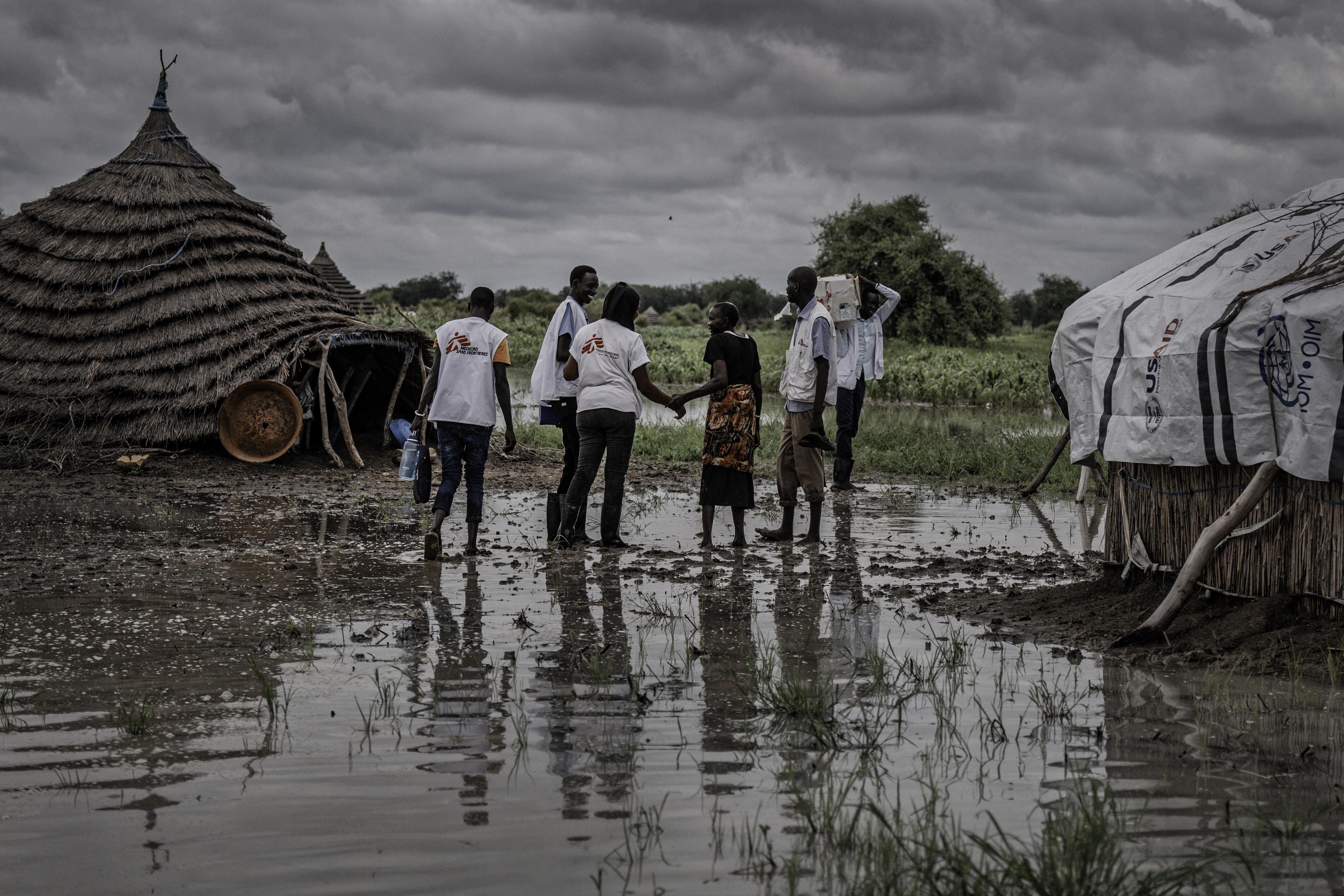
I belong to MSF Community
I have spent my whole career with MSF, and I am very grateful for the experience. One thing that I will always remember was at the beginning of my career. We had to transfer a patient to Khartoum. On the northern border of Abyei we transferred the patient to another vehicle that had come from Khartoum. I had to stay overnight at a guest house. When I walked into the compound wearing my MSF T-shirt, all of these aid workers warmly greeted me. “Wow,” they said, “You must be good at your job, you must be a hard worker to be working with MSF.” I was so surprised and very happy. They made me very welcome, and I felt very proud. I’ll never forget that moment.
When I started with MSF, I was young—just 25. And when you are the youngest you have to do the smaller jobs, you have to do more menial things. Now I find myself being the oldest one here. I have grown up here with MSF! MSF is my life.”
